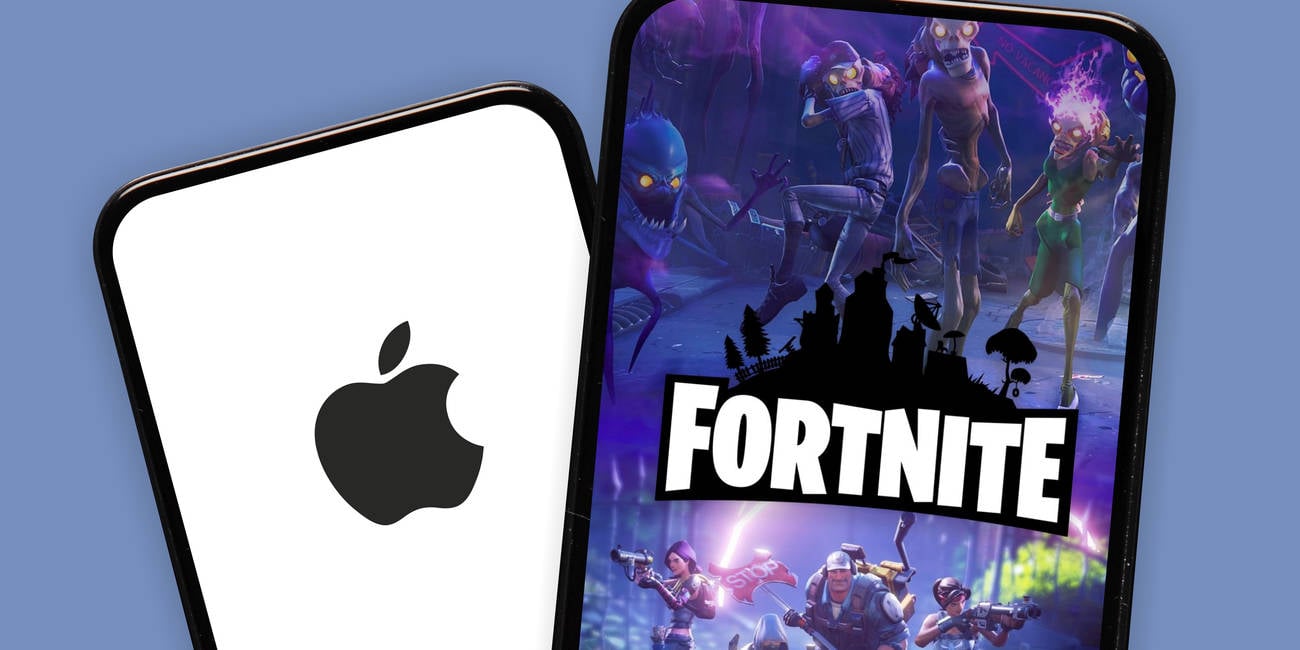US Supreme Court Doesn't Want To Hear Apple, Epic's Gripes About In-app Purchases

Updated Apple fans in the US may soon see links appearing in some of their iOS apps to non-Apple payment systems through which they can purchase stuff. That's because the nation's Supreme Court has decided not to hear appeals from the iGiant and Epic Games in the pair's long-standing spat over this processing of in-app payments.
SCOTUS denied both Apple and Epic's writs of certiorari filed in September, when both parties filed an appeal to an April decision by the US Ninth Circuit Court of Appeals.
That April appeal court decision largely upheld a lower court's verdict that Apple's "anti-steering" rules barring links or buttons in apps to outside payment methods was unlawful, but decided in Apple's favor that the App Store's app review guidelines – including the requirement that applications must use Apple's payment system for in-app purchases – weren't necessarily anticompetitive. In other words, Apple is allowed to require that in-app purchases must use Apple's own payment method (through which the mega-corp takes a cut of the sales) but it can't stop apps from linking to outside payment systems through which people can also buy stuff (and from which Apple may not be able to take a cut.)
The Supreme Court offered no justification for its snub.
For those unfamiliar with the Epic v. Apple saga, the case goes back to 2020 after Apple barred the hugely popular Fortnite (and other Epic Games titles) from the official App Store. Cupertino was upset that Epic had started directing gamers to go outside Apple's walled garden to purchase in-game currency and items - a violation of the iPhone giant's so-called anti-steering rules. Epic instead wanted players to purchase things from its own store, to avoid the Apple tax, leading to Cupertino kicking Epic out of its official iOS App Store.
Epic sued Apple in response, leading to the aforementioned 2021 lower court decision that found Apple wasn't being a monopolist, though the mega-corp was banned from enforcing that anti-steering provision.
Neither party was satisfied with the outcome, leading to appeals to the Ninth Circuit, which agreed with the lower court's decision that Apple would have to start allowing apps to link out to non-Apple payment systems.
Epic and Apple tried to take this further, all the way to the Supreme Court, which decided against hearing the case. That means the lower courts' decisions stand, and it looks as though Apple will have to put up with apps in its official App Store linking to outside non-Apple payment methods.
(A temporary stay on the lower district court's ruling in favor of in-app links to non-Apple payment systems had been put in place by the appeals court while this matter was heading to the Supreme Court, but with that hearing no longer on the cards, presumably the stay is lifted and the lower court's rulings will stand.)
- Forcing Apple to allow third-party app stores isn't enough
- Google coughs up $700M in Play Store antitrust suit
- Japan unleashes regulation Kaiju on Apple's and Google's app store monopolies
- South Korea 'puts the brakes' on Google's app store dominance
When asked for comment, Epic Games directed us to a Twitter thread posted today by CEO Tim Sweeney, who, despite managing to achieve a partial win in the affair, described the SCOTUS rejection as "a sad outcome for all developers."
"The district court's injunction against Apple's anti-steering rule is in effect … as of today, developers can begin exercising their court-established right to tell US customers about better prices on the web," Sweeney said.
Still, the Epic Games CEO added, the fight isn't over.
"Regulators are taking action and policymakers around the world are passing new laws to end Apple's illegal and anticompetitive app store practices," Sweeney added, in reference to the EU's Digital Markets Act that will also force Apple to open apps to third-party IAPs.
As for what the decision means for Epic's presence in the Apple App Store, it's not immediately clear whether Epic will be allowed to return. We asked Apple and its lawyers in the case, but haven't heard back.
Epic won a similar court battle against Google late last year, and is expected to go to trial against Google in Australia sometime this year. ®
Updated to add
Apple has indeed updated its App Store rules in the US to allow developers to link to alternative payment methods. Cupertino insists on collecting a cut of sales, up to 27 percent, even if a non-Apple system is used.
From Chip War To Cloud War: The Next Frontier In Global Tech Competition
The global chip war, characterized by intense competition among nations and corporations for supremacy in semiconductor ... Read more
The High Stakes Of Tech Regulation: Security Risks And Market Dynamics
The influence of tech giants in the global economy continues to grow, raising crucial questions about how to balance sec... Read more
The Tyranny Of Instagram Interiors: Why It's Time To Break Free From Algorithm-Driven Aesthetics
Instagram has become a dominant force in shaping interior design trends, offering a seemingly endless stream of inspirat... Read more
The Data Crunch In AI: Strategies For Sustainability
Exploring solutions to the imminent exhaustion of internet data for AI training.As the artificial intelligence (AI) indu... Read more
Google Abandons Four-Year Effort To Remove Cookies From Chrome Browser
After four years of dedicated effort, Google has decided to abandon its plan to remove third-party cookies from its Chro... Read more
LinkedIn Embraces AI And Gamification To Drive User Engagement And Revenue
In an effort to tackle slowing revenue growth and enhance user engagement, LinkedIn is turning to artificial intelligenc... Read more

